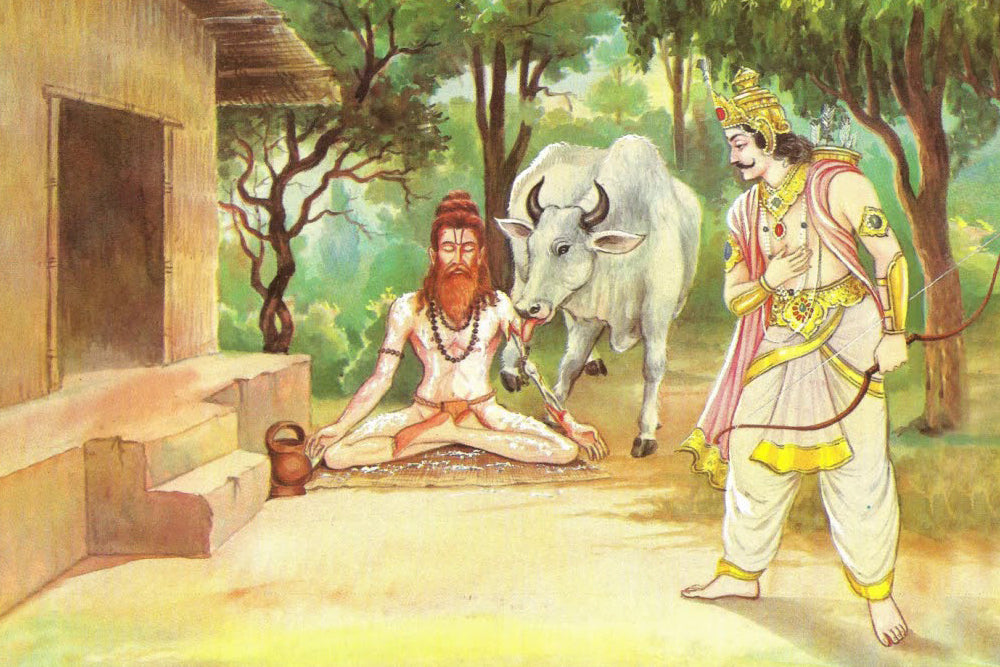
The Wisdom and Philosophical Teachings of the Upanishads
The Upanishads, ancient spiritual texts dating back thousands of years, hold a treasure trove of philosophical wisdom. Situated at the culmination of Vedic literature, these profound scriptures offer profound insights into the nature of reality, the self, and the ultimate purpose of life. In this blog, we embark on a journey through the philosophical teachings of the Upanishads, exploring their timeless wisdom and relevance in today's world.
- The Search for Ultimate Reality
At the heart of the Upanishads lies the pursuit of ultimate reality - the understanding of that which is eternal, unchanging, and beyond the limitations of the material world. This ultimate reality is known as Brahman. The Upanishads describe Brahman as the indivisible, all-encompassing essence that underlies the entire universe. To realize Brahman is to grasp the fundamental truth of existence.

- The Identity of Atman and Brahman
One of the most profound revelations of the Upanishads is the identity between Atman (the individual self) and Brahman (the universal self). The Upanishads assert that the individual soul, Atman, is not distinct from the ultimate reality, Brahman. This realization of the oneness between Atman and Brahman is the key to spiritual liberation (moksha) - the freedom from the cycle of birth and rebirth (Samsara).
- The Illusory Nature of the World
Maya, a central concept in the Upanishads, refers to the illusory nature of the material world. It is the power that veils the true reality of Brahman, causing individuals to perceive the world as separate and distinct. Understanding the illusory nature of Maya is crucial in transcending the limitations of the material realm and seeking the eternal truth beyond appearances.

- Karma and the Law of Cause and Effect
The Upanishads expound the concept of Karma, which denotes the law of cause and effect governing the universe. Every action, intention, and thought has consequences that shape one's future experiences. Understanding the workings of Karma empowers individuals to act responsibly and ethically, knowing that they are architects of their own destinies.
- The Pathways to Self-Realization
The Upanishads present various paths to attain self-realization and unity with Brahman:
5.1. Jnana Yoga (The Yoga of Knowledge): This path advocates the pursuit of knowledge and the understanding of the true nature of reality through self-inquiry and contemplation. It involves discerning the difference between the eternal and the transient, ultimately leading to the realization of the unity of Atman and Brahman.

5.2. Bhakti Yoga (The Yoga of Devotion): This path centers around pure devotion and love for the divine. Through heartfelt surrender and unwavering devotion, seekers merge with the object of their devotion, recognizing the unity between themselves and the divine.
5.3. Karma Yoga (The Yoga of Selfless Action): This path encourages individuals to perform their duties and actions without attachment to the results. By selflessly dedicating their actions to a higher purpose, seekers purify their hearts and minds, paving the way for self-realization.
- The Eternal Quest for Knowledge
The Upanishads emphasize the importance of knowledge and learning as a means of understanding the deeper truths of existence. They encourage seekers to be humble, open-minded, and receptive to the teachings of wise mentors (gurus) who have realized the ultimate truth.

Conclusion
The Upanishads stand as a beacon of philosophical wisdom, guiding humanity on a profound spiritual journey. Their teachings on Brahman, Atman, Maya, and Karma offer invaluable insights into the nature of reality, the self, and the universe. In an ever-changing world, the Upanishads continue to inspire seekers to look beyond the material realm and discover the eternal truth within themselves. By delving into the profound philosophical teachings of the Upanishads, we can awaken our consciousness, attain self-realization, and experience the oneness that unites all beings and the cosmos.
By Nishita Khanna
(The images used in this blog post are not owned by Anime Devta, they are just to help the readers)

